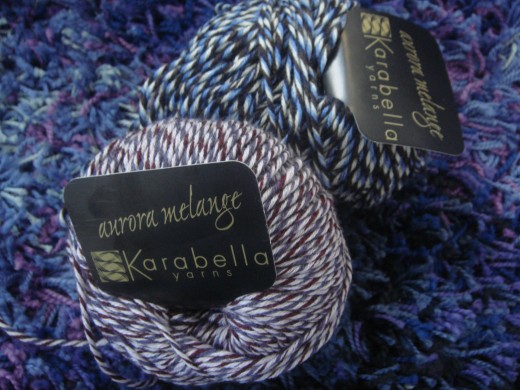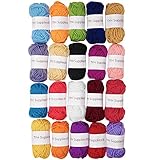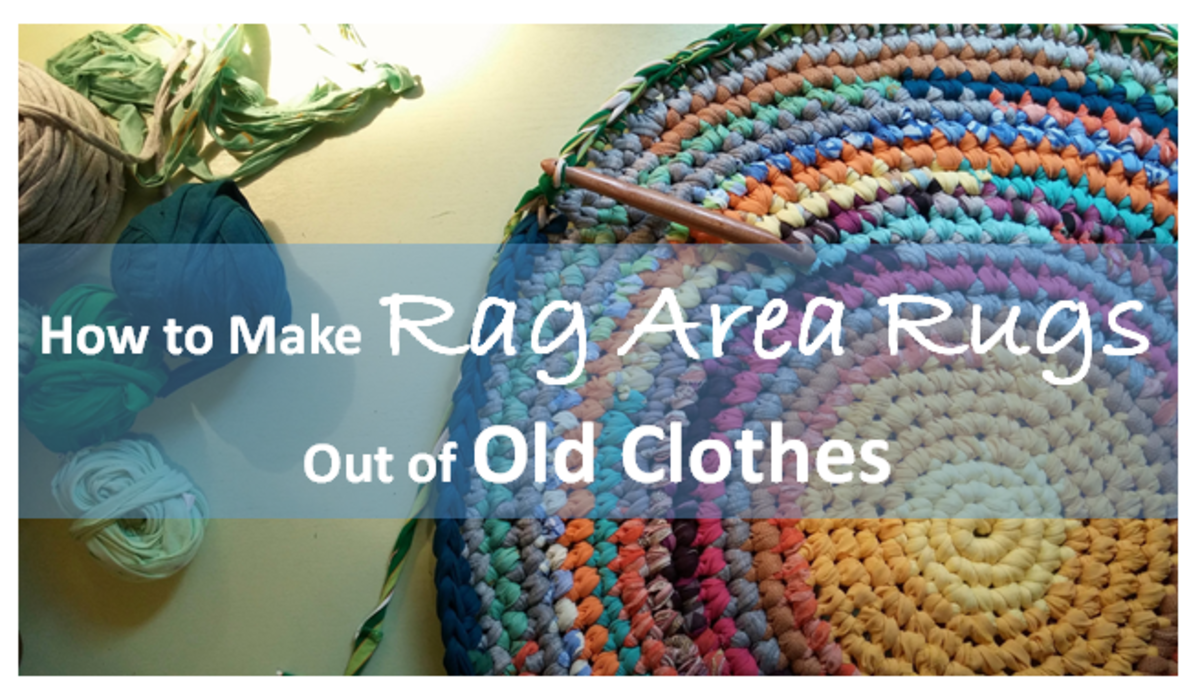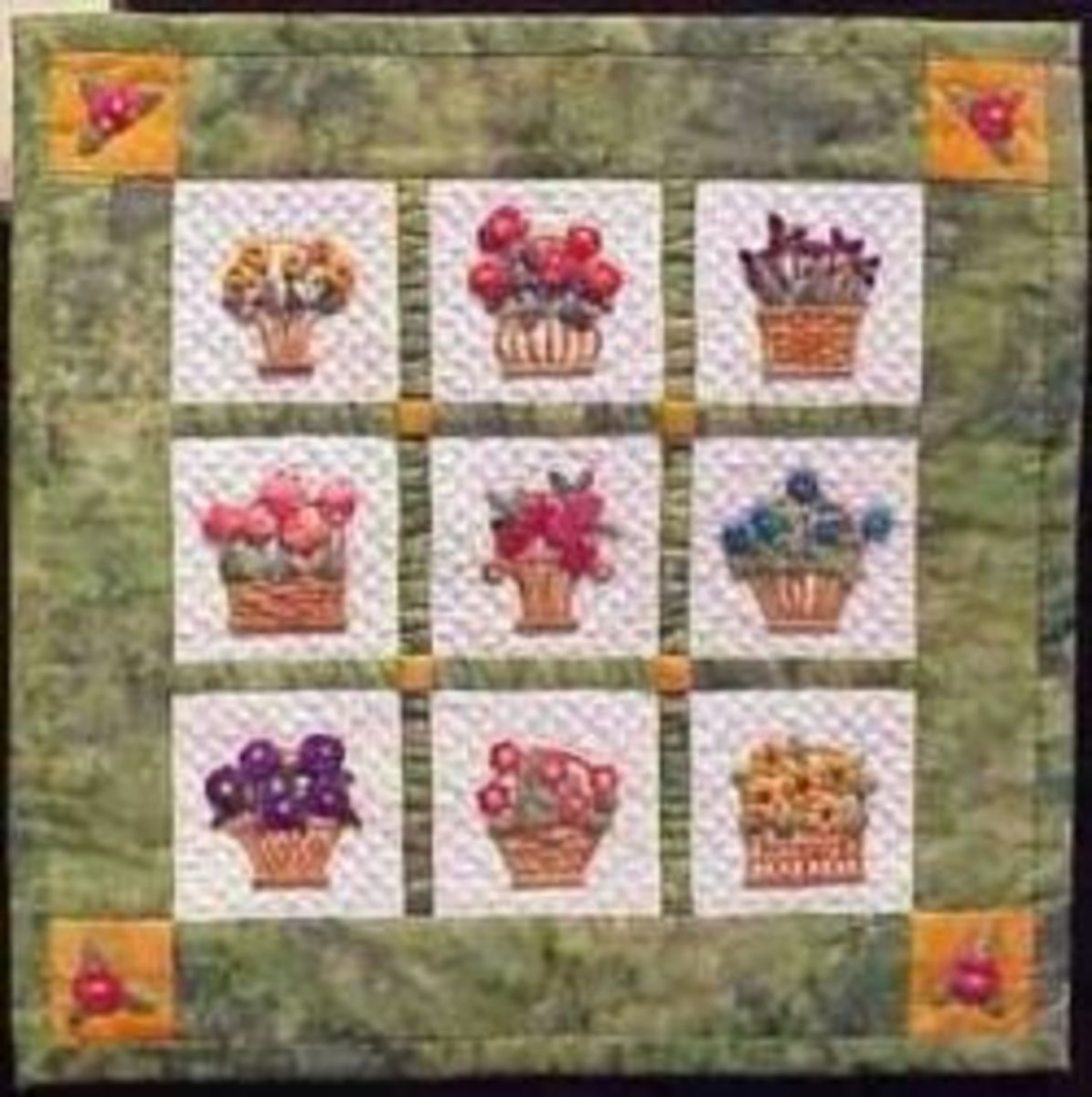How to Choose the Right Yarn for a Craft Project

Before I started learning how to crochet, I thought that yarn was yarn. Boy was I wrong. Now that I’ve been crocheting for a couple of years (and become a little bit yarn obsessed, I admit) I realize that there are many, many different types of yarn. Knowing a little bit about your different yarn options will help you to choose the right yarn for any craft project. This guide can get you started.
Fiber Type
The first thing that you should get familiar with if you want to use yarn in your crafting is the different types of fiber that are available. There are many, many different types of yarn and they all feel different and work up differently from one another. Some examples of common yarn types that you might come across include:
o 100% wool yarn. This type of yarn may range from having a scratchy, natural feel to having a really soft plush feel. It really depends a lot on what type of wool it is and how the wool has been treated in processing. Yarn commonly comes from sheep but it may also come from alpacas, goats and other animals. This type of yarn can be great to work with but your finished products may require some extra care and attention, such as hand washing and line drying for garments.
o Acrylic yarn. This is a synthetic type of yarn. It is probably the most common type of yarn that you will see in big box stores such as Michaels or Joann’s. It tends to be more affordable than other types of yarn. It is often very soft to the touch. It’s definitely a convenient yarn to work with and the finished products can often be washed and dried in a machine. However, it’s not the most eco-friendly of yarns and that’s always worth considering as a crafter.
o Cotton yarn. This is a natural yarn type that comes from plants instead of animals. Cotton yarn is typically a stiffer type of yarn. That makes it a great option for doing structured crochet and knit pieces. Cotton yarn also works well for kitchen items, like dishcloths, because of the nature in which it absorbs water without becoming soaking wet itself.
o Silk, bamboo and other yarns. There are lots of different fibers that can be used to make yarn. In fact, yarn can be made from just about anything that can be stretched out and tied together! Some of the more common types of yarn other than wool, cotton and acrylic are silk, bamboo, and hemp. Silk and bamboo are very soft and shiny whereas hemp is more rough and structured.
Take the time to go to a variety of local yarn stores to explore the different yarn fiber types that are available to you. You’ll learn a lot just by picking them up, seeing how they look and feel and reading the labels on the yarn.
Yarn Weight
The next big thing to learn after getting used to different fiber types is the different weights of yarn that are available. Most yarns are labeled with a number between 1 and 6, which reflects the thickness of the yarn. A very thin yarn that is used for making lacy products is going to have a low number. These yarns are also called baby yarn, sock yarn, laceweight and fingering weight yarn. A high number is going to be a really bulky, thick yarn. Yarns in the 3-4 range are medium-weight yarns that can be used for many different types of products. These mid-range yarns are often called worsted weight, DK weight or sportweight yarn.
Personally I think it’s best to begin working with mid-range yarns and then work your way out to the other yarn types. I love a good laceweight yarn but it’s not as easy to work with for me because it’s thinner and lighter and requires more dexterity to manipulate it. And bulky yarns can be terrific, especially because bulky projects work up really quickly, but these yarns can also require some different dexterity that you need to adjust to as you get started.
Yarn Source
Personally I think that it’s important to consider the source of your yarn. Some people don’t care about this. They buy affordable yarn from big box stores and don’t pay attention to where it was made. That’s okay for some people but I like to know the story behind my yarn. I like to work with small yarn companies that raise animals for fiber, treating them in a loving and ethical manner. I like to work with independent spinners and dyers that create unique color compositions of yarn. I like to choose eco-friendly and organic yarns for many of my projects. I think it’s worth it to learn the story behind your yarn, which is something that you can do by working with smaller yarn stores either locally or online.
Other Yarn Considerations
The yarn that you will need for a product depends on a variety of factors. When it gets down to it, you’ll need to just play with different yarn types to see what works best for your crafting and what you prefer to work with. However, if you’re working off of a knitting, crochet or felting pattern then there’s a good chance that the pattern writer will tell you what yarn you need. They may recommend a specific brand and type of yarn or they may just tell you that you should use a 100% alpaca wool worsted weight yarn. Either way, this is a great guide to help you in choosing the right yarn.
Oh, and there’s one more big thing to figure out when choosing your yarn – the color that you want! There are solid colors, variegated colors and all sorts of other options within the rainbow of yarn options. But that just depends on your personal preference, now doesn’t it?!




